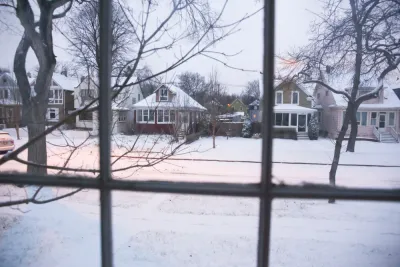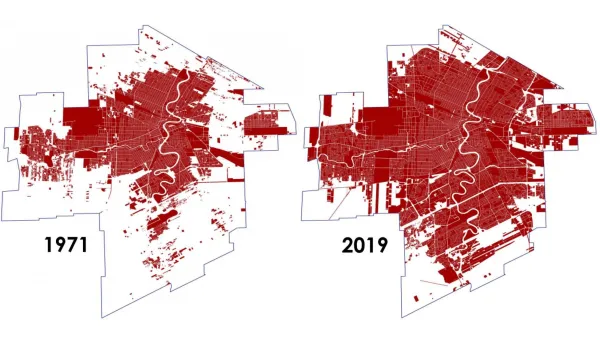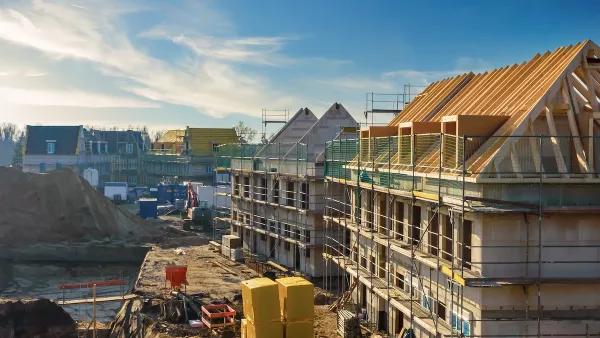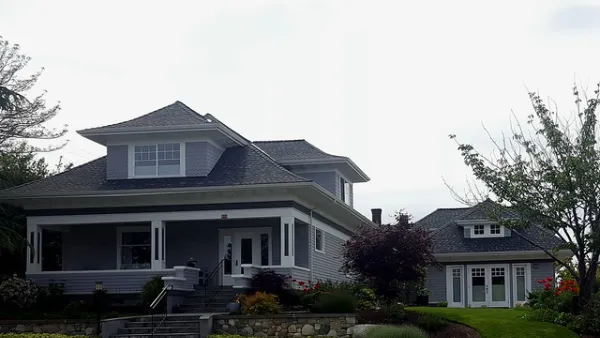Impact fess, also known as growth fees, are creating controversy in the Canadian city of Winnpeg, even as the city prepares new infill development guidelines to quell development controversies in older neighborhoods.

Bartley Kives reports from Winnipeg, where the city is wrestling with a desire to add more infill.
Kives traces the controversy back to 2016, when the city introduced impact fees, also known as growth fees. "The fees apply to new developments in some outlying neighbourhoods of Winnipeg," explains Kives. "Developers dislike them — a legal challenge against Winnipeg's authority to levy the charges is still winding its way through the courts at the speed of a large and heavily sedated sloth."
Winnipeg Mayor Brian Bowman has been a big supporter of impact fees, arguing that the city needs revenue to fund the infrastructure that supports the city's expansion. Still, the impact fees haven't generated any spending, despite raising $11 million, because of the ongoing court case.
A city plan to roll out the impact fees to older parts of the city, subject to infill development, also raises question about the goals of the fee program. "In theory, growth fees disincentivize urban sprawl — which is costly for cities — and make development in older neighbourhoods more attractive," explains Kives.
Taxing infill developments would spread the disincentive around. "To urban planning nerds, it may seem counterproductive to apply growth fees to infill development, which is the type of growth cities all over North America are trying to encourage."
There's at least one voice in power in the city who thinks infill projects are burdensome enough on the city's resources to warrant an impact fee, City council property chair Brian Mayes. "Mayes said he's not convinced infill pays for itself. On Friday, he said any increase in population results in greater stresses on Winnipeg's sewage-treatment system, for starters," reports Kives.
Set against that political backdrop, the city is also preparing new infill guidelines, designed to help new developments blend in to the existing urban fabric.
FULL STORY: What do we want? Infill housing! How do we get it? We have no idea!

Analysis: Cybertruck Fatality Rate Far Exceeds That of Ford Pinto
The Tesla Cybertruck was recalled seven times last year.

National Parks Layoffs Will Cause Communities to Lose Billions
Thousands of essential park workers were laid off this week, just before the busy spring break season.

Retro-silient?: America’s First “Eco-burb,” The Woodlands Turns 50
A master-planned community north of Houston offers lessons on green infrastructure and resilient design, but falls short of its founder’s lofty affordability and walkability goals.

Test News Post 1
This is a summary

Analysis: Cybertruck Fatality Rate Far Exceeds That of Ford Pinto
The Tesla Cybertruck was recalled seven times last year.

Test News Headline 46
Test for the image on the front page.
Urban Design for Planners 1: Software Tools
This six-course series explores essential urban design concepts using open source software and equips planners with the tools they need to participate fully in the urban design process.
Planning for Universal Design
Learn the tools for implementing Universal Design in planning regulations.
EMC Planning Group, Inc.
Planetizen
Planetizen
Mpact (formerly Rail~Volution)
Great Falls Development Authority, Inc.
HUDs Office of Policy Development and Research
NYU Wagner Graduate School of Public Service




























